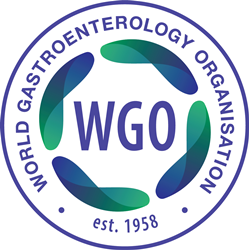
“The cascade options presented here for both the diagnosis and management of gastrointestinal tuberculosis are key and represent the most important part of this document. Particular emphasis is placed on gold-standard, medium-resource, and low-resource categories.”
MILWAUKEE (PRWEB)
April 27, 2021
The World Gastroenterology Organisation (WGO) has announced the release of the new Digestive Tract Tuberculosis Guideline. This Guideline is chaired by Mohamed Tahiri of the IBN Rochd University Hospital in Casablanca, Morocco and K.L. Goh of the University of Malaya Medical Centre in Kuala Lumpur, Malaysia.
The Guideline was created with the global view of many Guideline Review Team members, which, in addition to Dr. Tahiri and Dr. Goh, includes Zaigham Abbas (Pakistan), David Epstein (South Africa), Chen Min-Hu (China), Chris Mulder (Netherlands), Amarender Puri (India), Michael Schultz (New Zealand) and Anton LeMair (Netherlands). The Guideline can be accessed here.
In introducing this Guideline, Prof. Tahiri stated, “Tuberculosis is an infectious disease caused by Mycobacterium tuberculosis, typically causing pulmonary TB. TB is the ninth most frequent cause of death worldwide and is the leading cause due to a single infectious agent, ranking above human immunodeficiency virus/acquired immune deficiency syndrome (HIV/AIDS).”
TB occurs in every part of the world. In 2017, the largest number of new TB cases occurred in the South-East Asia and Western Pacific regions, with 62% of new cases, followed by the African region, with 25% of new cases.
WGO Guidelines uniquely feature cascades which are intended to highlight appropriate, context-sensitive and resource-sensitive management options for all geographical areas, regardless of whether they are “developing,” “semi-developed,” or “developed.” WGO cascades are context-sensitive, and the context is not necessarily defined solely by resource availability.
As Prof. Goh added: “The cascade options presented here for both the diagnosis and management of gastrointestinal tuberculosis are key and represent the most important part of this document. Particular emphasis is placed on gold-standard, medium-resource, and low-resource categories.”
With this new Guideline, WGO now has a library of 27 Global Guidelines, which are written from a viewpoint of global applicability. Each Guideline goes through a rigorous process of authoring, editing, and peer review, and is as evidence based as possible. WGO is the only organization whose Guidelines have adopted a global focus. Each WGO Guideline is available in English, French, Mandarin, Portuguese, Russian and Spanish and is updated as new information and evidence is discovered. The Global Guidelines Committee meets each year to discuss updating and creating new Guidelines and consists of 30-plus members from around the globe.
ABOUT THE WORLD GASTROENTEROLOGY ORGANISATION
Formed in 1935 and incorporated in 1958, The World Gastroenterology Organisation (WGO) is a federation of 116 member societies and 4 regional associations of gastroenterology representing more than 50,000 individual members worldwide, focusing on the improvement of standards in gastroenterology training and education on a global scale. The WGO Foundation, incorporated in 2007, is dedicated to raising funds to support WGO educational programs and activities. For more information, contact: info@worldgastroenterology.org.
Share article on social media or email:

